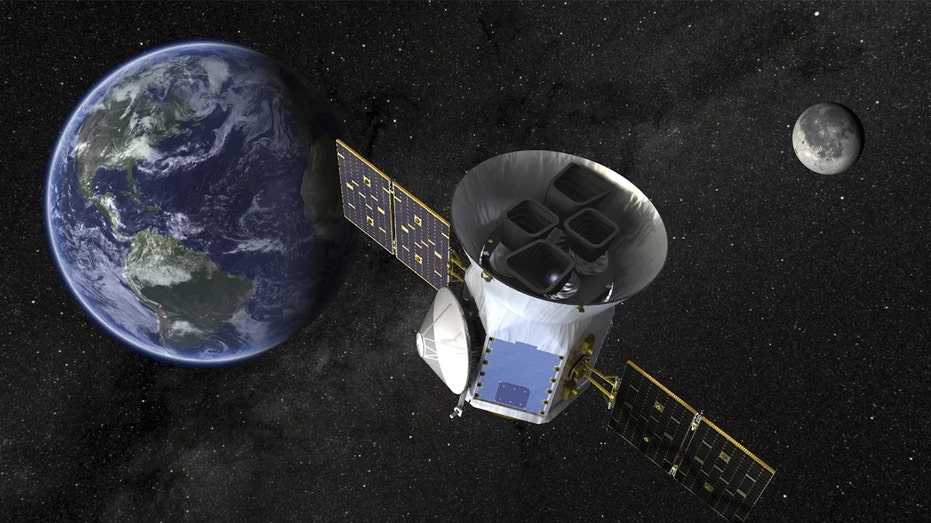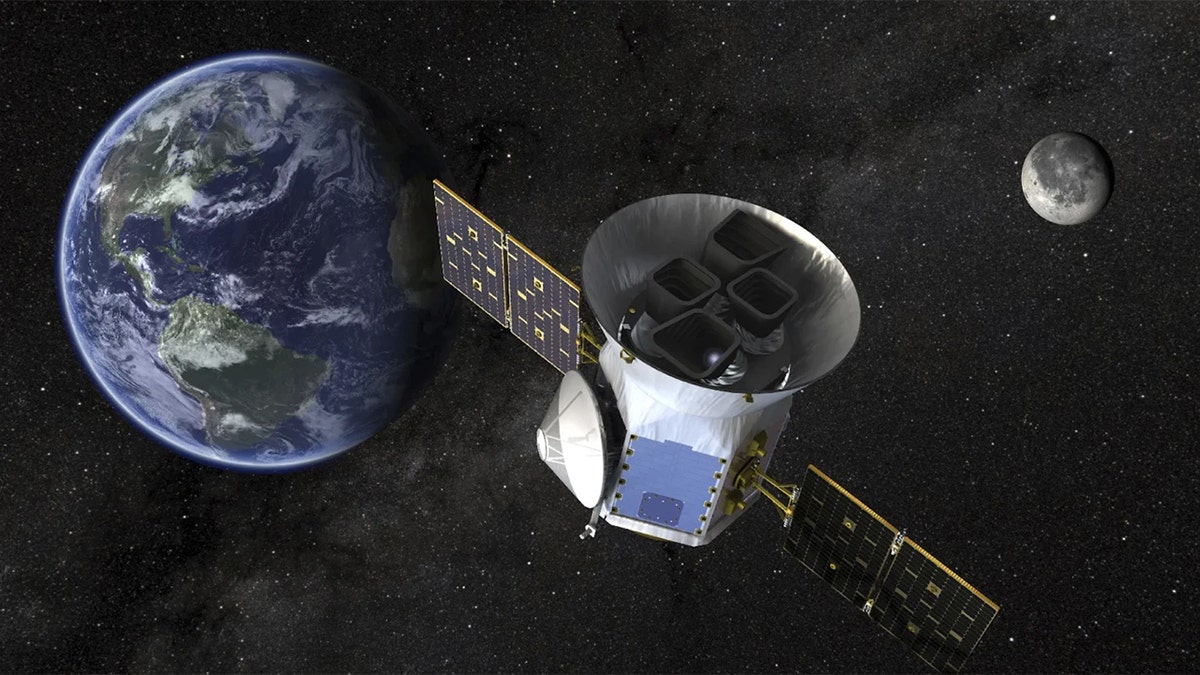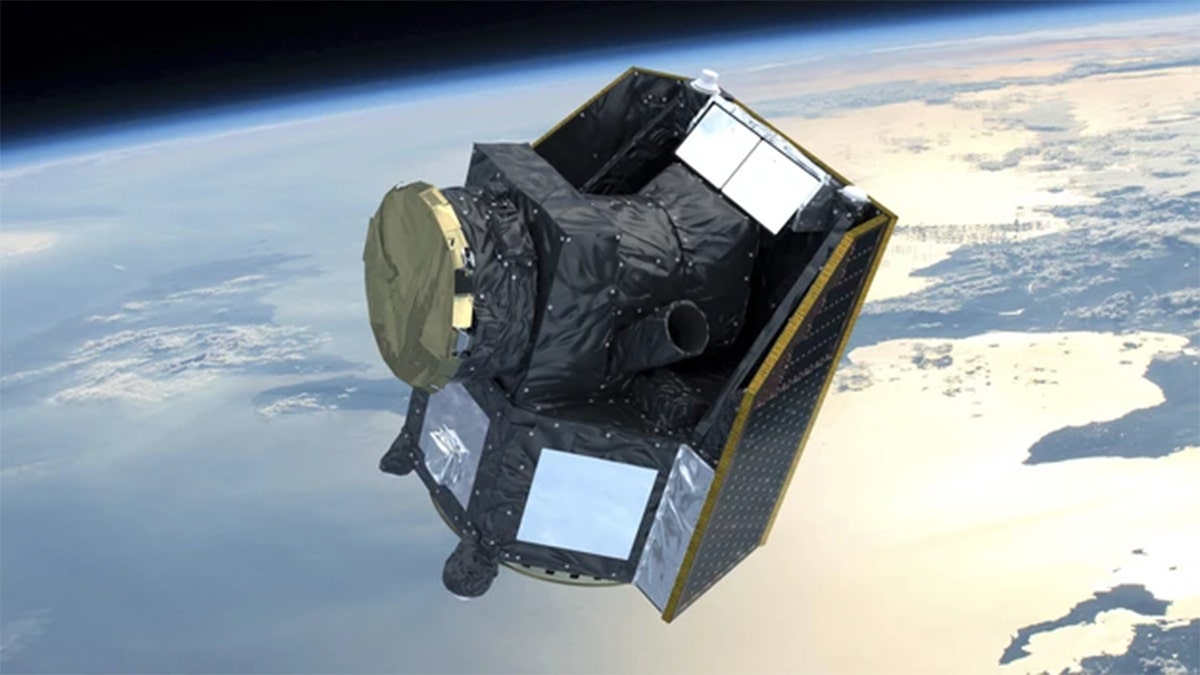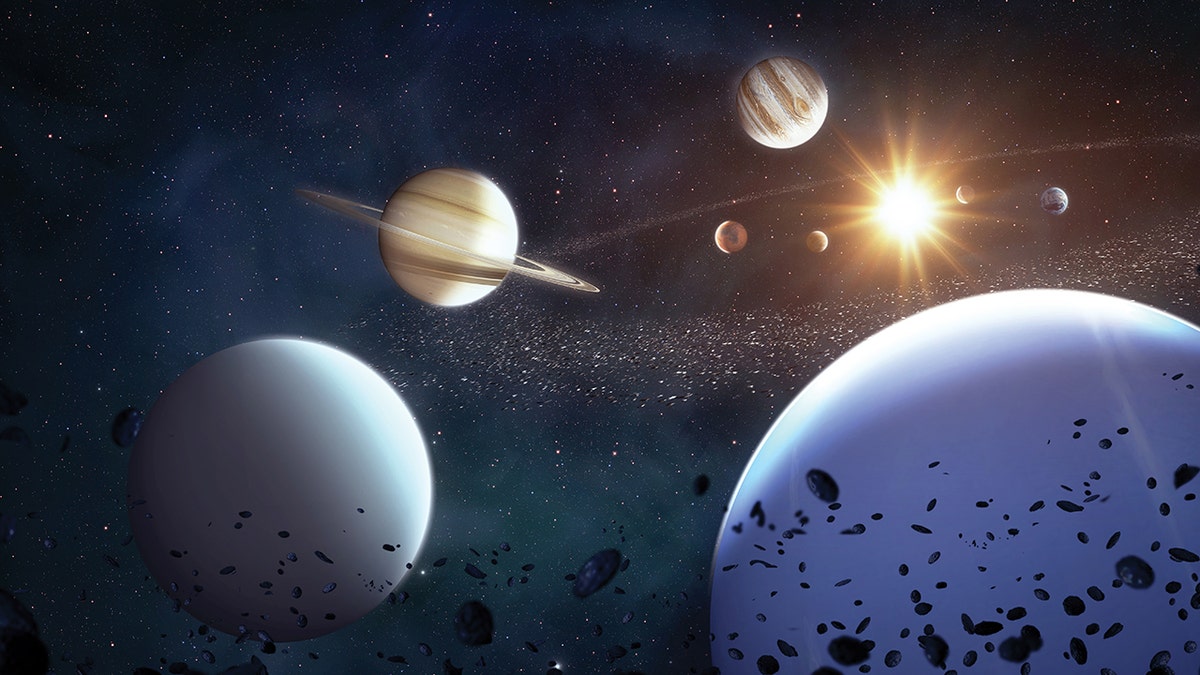Astronomers discover solar system with 6 planets in perfect sync
3 minutos de lectura
Jaw dropping discovery gives astronomers a model for how solar systems in the Milky Way came to be
Astronomers using planet-hunting satellites have discovered a rare solar system with six planets moving completely in sync with one another, as if they were untouched by any outside force since being created billions of years ago.
The Associated Press reported that the discovery was announced on Wednesday, and it could provide insight into how solar systems in the Milky Way galaxy are created.
The newly discovered system is about 100 light-years away, with a single light year equaling 5.8 trillion miles.
THOUGHT-PROVOKING, CLIMACTIC SPACE-RELATED MOVIES THAT WILL CAPTIVATE YOU THROUGH BOUNDLESS JOURNEYS

This image provided by NASA shows an artist’s illustration of the Tess telescope. Astronomers have discovered six planets orbiting a bright nearby star in perfect rhythmic harmony. They say it’s a rare, frozen-in-time cosmic wonder that can help explain how solar systems across the galaxy came to be. The compact in-sync system, announced Wednesday, is 100 light-years away. ((NASA via AP))
The system is also located in the constellation Coma Berenices.
Astronomers used NASA’s Tess and the European Space Agency’s Cheops, two planet hunting satellites, to locate the system of planets revolving around a single star.
But for those hoping and imagining that the planets contain life, the report suggests that none of them are within the so-called habitable zone of the star, meaning there is little likelihood of there being life as we know it.
«Here we have a golden target for comparison,» Adrien Leleu of the University of Geneva said. Leleu was part of an international team that published the results in the journal Nature.
BLACK HOLES EXPLAINED: WHY THEY’RE SOME OF THE STRANGEST OBJECTS IN SPACE

This illustration provided by the European Space Agency shows an artist’s rendering of the Cheops telescope in orbit above Earth. Astronomers have discovered six planets orbiting a bright nearby star in perfect rhythmic harmony. They say it’s a rare, frozen-in-time cosmic wonder that can help explain how solar systems across the galaxy came to be. The compact in-sync system, announced Wednesday, is 100 light-years away. ((European Space Agency via AP))
Although six planets were observed rotating around the star known as HD 110067, there could be more.
However, the six known planets orbiting the star are about two to three times bigger than earth yet have densities similar to the gas giants in our solar system.
Also, unique to the discovered system is how the planets orbit around the start like a synchronized symphony, as described by scientists.
Enric Palle of the Institute of Astrophysics of the Canary Islands co-authored the results and said the planets’ perfect sync movement is known as resonance, adding that they move very «precise» and «very orderly.»
NASA PLANS TO BUILD SUBDIVISION OF HOMES ON MOON: IT MAY BE SOONER THAN YOU THINK

Illustration of the solar system. (Tobias Roetsch/Future Publishing via Getty Images)
The planet closest to the star completes three orbits for every two by the second-closest star, the AP reported, and it is the same for both the second- and third-closest planets, as well as the third- and fourth-closest planets.
The orbits of the two outermost planets are 41 and 54.7 days respectively, and the innermost planet completes six orbits for every one orbit the outermost planet completes.
Scientists say all solar systems start out this way, but only about 1-in-100 systems retain the synchrony that is observed in the newly discovered system — our solar system is not one of them.
Things that can throw off a solar system’s sync include giant planets, meteor bombardments, and close encounters with neighboring stars.
Hugh Osborn of the University of Bern was part of the team that made the discovery, and he said he was «shocked and delighted» when the orbital periods of the system’s planets came close to what scientists predicted.
«My jaw was on the floor,» he said. «That was a really nice moment.»



